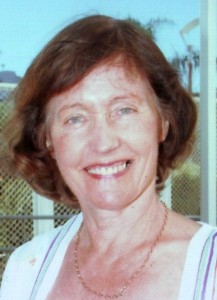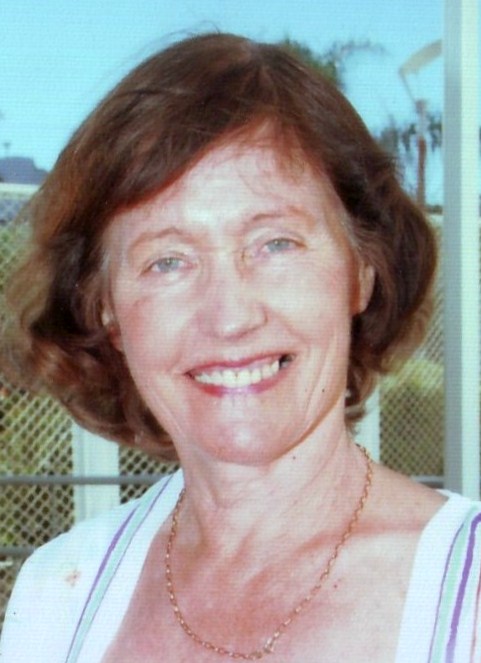An Interview with Elaine Blick: Author
Sylvia: Hi Elaine, it is such a pleasure to interview you. Please give our readers a brief introduction of yourself and a little about your book.
Elaine: Thank you Sylvia. My name is Elaine Blick. I was born in Salisbury, England, and  after the War went with my parents to New Zealand. I grew up in Auckland where I attended state schools. I trained as a primary teacher directly on leaving school but after several years teaching I wanted to continue my education so I studied for an MA degree in English at Auckland University. I then left New Zealand for England where I taught in primary and secondary schools until I retired in 2000. I now spend half the year in my London flat and the other half in New Zealand during the summer months where I have a cottage on the beach.
after the War went with my parents to New Zealand. I grew up in Auckland where I attended state schools. I trained as a primary teacher directly on leaving school but after several years teaching I wanted to continue my education so I studied for an MA degree in English at Auckland University. I then left New Zealand for England where I taught in primary and secondary schools until I retired in 2000. I now spend half the year in my London flat and the other half in New Zealand during the summer months where I have a cottage on the beach.
I was always interested in writing and over the years attended a number of creative writing courses but never got further than writing a few short stories, which mostly found their way into the rubbish bin. Since I retired, apart from playing golf, I have enjoyed producing short documentaries on the lives of famous novelists: the Brontes, Jane Austen, Thomas Hardy and Charles Dickens. I have used these when organizing film festivals locally. I also read extensively, from the classics to modern novels. I am a member of our local church and enjoy participation in worship and Bible study.
Sylvia: Wow, very interesting! What inspired you to write your first book? 
Elaine: I never thought that I would attempt a novel myself but once I had started, I found the subject gripped my imagination. My book, “Where the Bellbird Sings” was written initially to preserve the memory of our old family house in Nelson, but as I wrote, many more strands to the story presented themselves.
I felt a compulsion to write when I first heard that the house was to be sold. It had been built by my great-grandfather in 1860, and was linked with the history of New Zealand. The idea of writing a novel based on the old house appealed to me and I saw a way of weaving together past and present – from 2010 back to 1962 and even further back to 1890. The girl at the center of the novel touches the lives of her elderly relatives and so is able to reach back into the past, theirs and her own and in the process, unlocks the mysteries of the house.
Sylvia: Is there a message in your book that you want readers to grasp?
Elaine: Running through the story, like a musical theme, is the song of the bellbird which links past and present and represents hope and continuity.
Sylvia: Do you have any advice for other writers?
Elaine: I think if you want to write a book you simply have to get started. It is a long project and the old saying: ‘well begun is half done,’ was certainly true for me. After my initial excitement at completing the first chapter, I then had to settle into a working routine of a certain number of words each day. I am best writing first thing in the morning, so after my morning chores, I settle down to write until lunchtime. I’m afraid if I left it to the afternoon, I would simply nod off over the computer. By setting a goal of a certain number of words each day, I have the satisfaction of seeing the story grow and I leave major revisions until after I the novel is completed. It is important to me to move forward each day and break new ground.
Sylvia: What marketing techniques have you used to sell your books and which ones have been most successful?
Elaine: I have found that giving talks to different groups is effective. I like the give and take of question and answer and find it stimulating. I also learn what interest’s people about a novel and I can learn from their comments. I intend to make further visits to schools and reading groups, because for me it is important to have contact with people. However, I am very open to good marketing ideas, especially in relation to the internet.
Sylvia: If you read the interviews of previous guests, you will find a wealth of information as to how other authors market their books. Why should we buy your book?
Elaine: I think my book has an appeal for most age groups because it concerns relationships within a family between different generations. Furthermore, the main character, Elizabeth, is a young schoolteacher just beginning in her first school. She encounters many of the problems that we all face in a new job. It is interesting to see the way she handles difficult children and parents as well as a headmaster who does not have much faith in young teachers. When she falls in love with a married man, who is also a Maori, she is faced with new set of problems and the way she copes with this highly charged emotional situation forms the main interest of the book
This is the kind of story most women can relate to, whatever their race or nationality, because it deals with perennial problems. What gives this book its unique flavor is that it is set in the New Zealand in the1960’s.
Sylvia: Is there a special place that you prefer when you write?
Elaine: I am very fortunate in having a small cottage right on the beach, just a few yards from the water‘s edge. It is very peaceful and as I write, I look across to the distant shores of Auckland. There is little to distract me here and so my mind is able to range freely. I am very thankful to have such a beautiful place to write.
Sylvia: What projects are you currently working on?
Elaine: I have just finished my second book, “No White Flowers Please,” and am currently proof-reading and editing it to prepare it finally for publishing. Once it is released, I will have my hands full promoting both books, although I would like to start a new novel before long.
Sylvia: What is your POWER WORD? Why this word? (A power word is a word that has great effect to the person hearing or reading it. My power word is EMPOWER)
Elaine: I suppose the word that is significant for me in regard to my writing is “optimism.” Without it, I don’t think I would ever have begun to write and I certainly had to believe that I could write a novel and see it through to the end.
Sylvia: To what extent is your writing autobiographical?
Elaine: I drew from my own teaching experience to provide authentic background for my book, “Where the Bellbird Sings,” but most of the incidents were imaginary. Some of the characters were based on people I had known in the past but I don’t think they would have recognized themselves.
Sylvia: How much do you plan of the plot in advance?
Elaine: I had a broad outline in mind when I began the novel but the plot tended to evolve as I wrote and introduced new characters.
Sylvia: What writing technique is best for you; first person, third person, epistolary etc.
Elaine: I am interested to try out different methods. My first book, “Where the Bellbird Sings,” was written in the 3rd person but my second is autobiographical in style. I think the subject of the book rather dictates the style.
Sylvia: Do you ask anybody to read your book before it is finished to gather some feedback or do you keep your manuscript under wraps until it is finished?
Elaine: I have let friends whose opinion I trust, read the first few chapters of each book and I did take notice of helpful criticism. After all, I am writing for an audience and I want to know whether my book is readable.
Sylvia: Elaine, thank you for sharing your life with us. Please share your contact information.
Elaine: My pleasure Sylvia. My contact information is below:
Website: http://sbpra.com/elaineblick/

Sylvia Browder is CEO of Specialty Home Services LLC, a Home Improvement Company; a Small Business Consultant at Browder Consulting Group, a startup consultancy firm to help women with startup assistance, marketing, website and graphic design work and other support services. In addition, she has co-authored several published books; publisher of ‘Sylvia Browder’s Blog for Women Entrepreneurs’ a lifestyle blog; and publisher of ShopSpendBlack.com Business Directory & Blog platform created to help consumers find black owned businesses in a searchable format. In her spare time, she enjoys spending time with her husband of 30 years; 5 adult children and 5 grandchildren; church; friends and motorcycle riding.
















